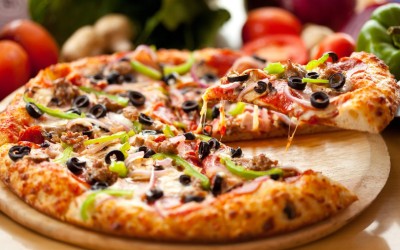Forgiveness is powerful
I was researching forgiveness recently for some emotional intelligence work with a client.
Forgiveness is the act or process of forgiving or being forgiven. That definition comes from the online Merriam-Webster Dictionary.
What, then, does forgiving mean? The same source says it is to cease to feel resentment against, to pardon, or to give up claim to requital.
We have all faced situations where we feel wronged, victimized, harmed, or hurt. We will undoubtedly face more situations like that. Practicing genuine forgiveness is a healthy way to experience life so those situations don’t continually negatively impact us.
I suspect most people would agree with me that forgiveness is valuable and even perhaps necessary for a happy and peaceful life. Why, then, are there so many people living with resentment and anger over hurt and wrongdoings?
I’ve had plenty of opportunities to experience the value of forgiveness but also found that research greatly supports forgiveness as being valuable.
∫ A study in Personality and Individual Differences found that people who forgive are 13% more likely to report higher life satisfaction and happiness levels.
∫ People who practice forgiveness report lower levels of anxiety, depression, and stress. A 2016 meta-analysis found a significant association between forgiveness and improved mental health outcomes.
∫ Research suggests that forgiveness can boost immune system functioning, possibly by reducing stress hormones like cortisol.
∫ A study published in the Journal of Behavioral Medicine found that forgiving individuals had lower blood pressure and heart rates, contributing to better cardiovascular health.
∫ Research shows that up to 30% of grieving individuals channel their emotions into anger or blame, often damaging relationships and delaying emotional recovery.
Forgiveness can be difficult but when we dig into the fact that not forgiving others is more harmful to us than the person we aren’t willing to forgive, we realize that there really isn’t value to not forgiving someone.
One of my favorite quotes (I have many) is about holding a grudge, which is like not forgiving someone, and says, “Holding a grudge is like drinking poison and expecting the other person to die.”
That’s powerful. If we cannot figure out how to genuinely forgive others, we are impacting ourselves negatively so much more than we are impacting the other person.
A friend and I were discussing what forgiveness looks like and how confusing it can be sometimes. We concluded that the real value of forgiveness is an internal dynamic and not so much external between you and the person or people you are forgiving.
We pointed out that sometimes we feel that forgiving someone means we must be friends with them and spend time with them, inviting them into our lives. The reality is that we can forgive someone, sincerely wish them well in life, show them kindness, but not invite them to be an active participant in our lives. We can include them in our lives if we choose that, but not including them does not automatically mean we haven’t forgiven.
Forgiveness also doesn’t mean we aren’t supposed to feel pain and pretend it never happened. Forgiveness allows us to feel the feelings but then let them go and not hold it against the person. Give them grace, and realize their actions say more about them than they do about us. When we forgive, we remember how we felt, but we don’t feel it for the rest of our lives because we are holding onto it and re-living it repeatedly.
Sometimes I think I forgive others too often and too easily. But then I think about the energy it would take to hold onto hurts and the ongoing pain it would lead to, and I realize that forgiveness has been instrumental to my own happiness. Without forgiveness I can think of several relationships I have that would be non-existent or strained. I think about the peace I have with others that otherwise might still cause me stress if the resentment remained in my mind and heart.
I think about times I’ve been forgiven and what a gift it is for me to know my actions or bad choices are no longer impacting the person I wronged. In many instances, I know I need to work on forgiving myself because the other person has truly already forgiven me but I haven’t quite forgiven myself yet.
Forgiveness is powerful. If you are holding on to hurt and are choosing not to forgive, I recommend starting down a path toward true forgiveness. It can be difficult, but the result is a healthier and happier life. With all the things in our lives we cannot control, we might as well dive into the ones we can as we seek personal growth and happiness.




